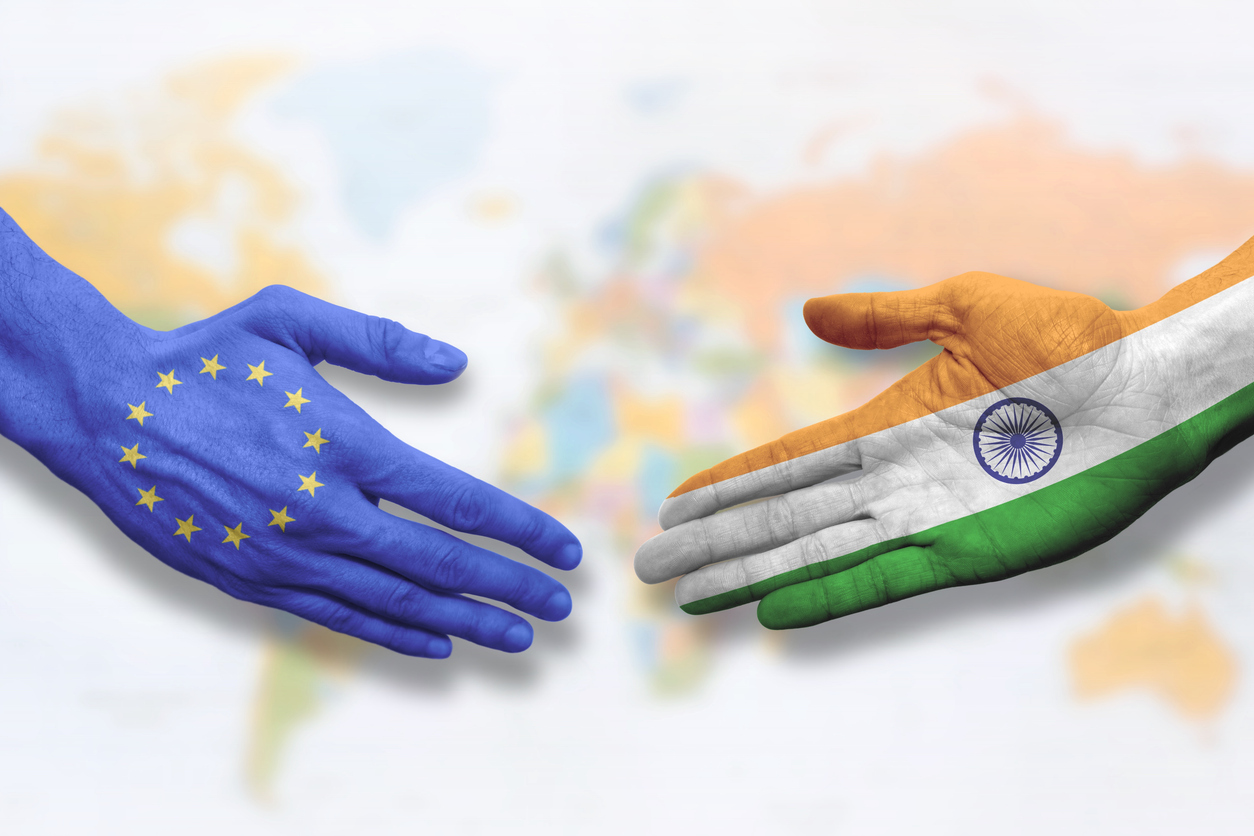
September 9, 2025
Commerce and Industry Minister Piyush Goyal expressed confidence that the negotiation framework will be well-defined and ripe for a decicive push toward conclusion
Germany has thrown its weight behind the FTA process as German Foreign Minister Johann Wadephul reaffirmed Berlin’s support during recent engagements with External Affairs Minister S. Jaishankar.
The FTA aims to deepen economic ties by addressing market access, trade barriers, and regulatory standards across key sectors
EU President Ursula von der Leyen highlighted India’s growing role in global affairs, particularly as a potential mediator in the Russia-Ukraine conflict

India’s negotiations with the European Union (EU) on a long-anticipated Free Trade Agreement (FTA) are entering a critical phase. European Trade Commissioner Maroš Šefcović and Agriculture & Food Commissioner Christophe Hansen are scheduled to visit India on September 12-13, 2025, to lead a fresh round of high-level talks with Commerce Minister Piyush Goyal.
This visit dovetails with the 13th round of FTA negotiations, which began earlier this week in New Delhi as both sides pressed to finalize the pact by year-end. According to India’s Commerce and Industry Minister Piyush Goyal, approximately 60–65% of the agreement’s chapters have already been finalized, reflecting substantial progress. Goyal expressed confidence that by the time Šefcović and Hansen arrive, the negotiation framework will be well-defined and ripe for a decicive push toward conclusion.
Germany has thrown its weight behind the FTA process as German Foreign Minister Johann Wadephul reaffirmed Berlin’s support during recent engagements with External Affairs Minister S. Jaishankar. Germany will advocate for advancement of the agreement within EU institutions.
The stakes of this phase of negotiation are high. The FTA aims to deepen economic ties by addressing market access, trade barriers, and regulatory standards across key sectors. The EU is pushing for reduced tariffs on vehicles, medical devices, wine, spirits, and dairy. India, in turn, seeks better entry for textiles, pharmaceuticals, steel, and petroleum.
Beyond trade, the agreement holds geopolitical significance. EU President Ursula von der Leyen highlighted India’s growing role in global affairs, particularly as a potential mediator in the Russia-Ukraine conflict, and envisaged a joint strategic agenda between the EU and India by 2026. Simultaneously, India is exploring broader strategic and defence initiatives with the EU, including dialogues on political cooperation, a trade & technology council, and expanded security frameworks.
Source: Economic Times